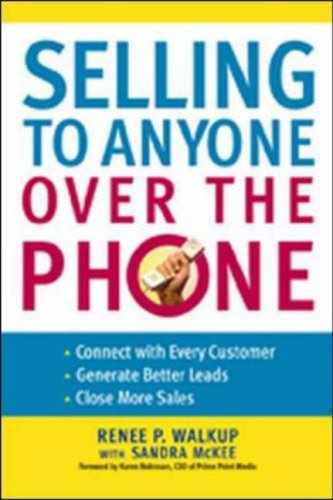Time/Cost Trade-Off
There are many ways to increase your efficiency as a sales professional. None, however, are magical, nor do they work unless you use them. For many of you, the recommendations in this chapter will be a significant departure from “I’ve always done it that way.” The following chart will help clarify why it’s so important to make changes that can improve your efficiency.
First, find your annual income in salary. You’ll see to the right what an hour of your time is worth, a minute, and last, in a year, if you waste an hour a day, how much you have squandered in terms of time (based on 244 days per year). If you are on a commission plan, the numbers are even more dramatic, since there are wasted opportunity costs by not being as efficient as possible and maximizing your sales.
What is your time worth?
| ||||||||||||||||||||||||||||||||||||||||||||
So, the way you manage your time has a direct impact on your income. If you are on straight commission, or receive bonuses, that extra hour each day you might spend in the car running to customers’ sites sucks up more than gas money. This is another good argument for making more use of the phone for your sales activity. Lost time translates directly into lost money for you.
Now, let’s look at your day and see just where your time is spent.
Exercise: Where does the time go?For this exercise, you will need to track everything you do for three days, rounding your activity to fifteen-minute increments. Let’s say you start your day at 8:00, then spend one hour calling customers, then break for fifteen minutes, etc. Be honest with yourself because no one will see this but you, and its purpose is to help you make more money through greater efficiency. At the end of the three days, sit in a quiet room and carefully analyze this report to see how you are using your time. Take a look at what you, personally, have control over. |
Consider how you can make better use of your time in different ways. After tracking your time, you might determine that by simply starting your calls fifteen minutes earlier, which allows you to make eight more calls per day or forty more per week, you can increase your sales. This might lead you to close three more sales per week. If an average sale for you is $1,000, in a week that adds up to $3,000, which multiplied by fifty-two weeks equals an increase of $156,000 in sales per year!
| 8 additional calls/day → 40 more per week →
3 more closes per week @$1,000 → $156,000/yr increase in sales! |
If your commission is 10 percent, you’ve added $15,600 to your yearly income. Is that chump change? The discipline part of this, though, is that starting your telephoning just fifteen minutes earlier gets you those additional eight calls per day. If you already spend that extra fifteen minutes having coffee and reading the newspaper, you have only deprived yourself of fifteen minutes of sleep.
The key is to examine what you do with your time. Although each person is different, every sales professional can manage time more effectively. In your plan, you might take every Friday afternoon off. A colleague might see that as a waste of time. Yet, for you, that afternoon might be networking time (an important part of lead generation), or it might be sanity preservation or exercise to stay healthier. If you spend fifteen minutes every afternoon talking to your child after school, that is not wasted time, even though it is a personal call—it is peace of mind. When you remember what your time costs, you are more aware of the cost/return ratio and what that means to you financially.
Taking care of your health, for example, in exercise, breaks, and getting out for lunch, is not wasted time. These activities result in better productivity. But if your friend doesn’t like her job and she calls you to talk for an hour a day, that person is costing you money. In sales, there is typically a higher percentage of refusal than acceptance, so you have to do some strict accounting to determine how to work the percentages. The way you spend your phone time is often the deciding factor. At some point, you need to seriously weigh how much money you need to make versus how much your time means to you.
Look at this time/expense trade-off example. Consider using a student or a sales assistant to manage your account information. A student might work for minimum wage as part of a co-op or for experience. Start thinking about how you can maximize strengths and minimize the time commitment of things about which you are not as enthusiastic. It might be more cost effective for you to pay someone, even a professional temp, to do all the data entry, so that you can direct your time to getting on the phone and selling.
This discussion is not a judgment of your performance, or a rule imposed on you by a boss or manager. It is a choice—the kind of choice business professionals need to make every day. Just be sure you are investing your time and not just passing it.
